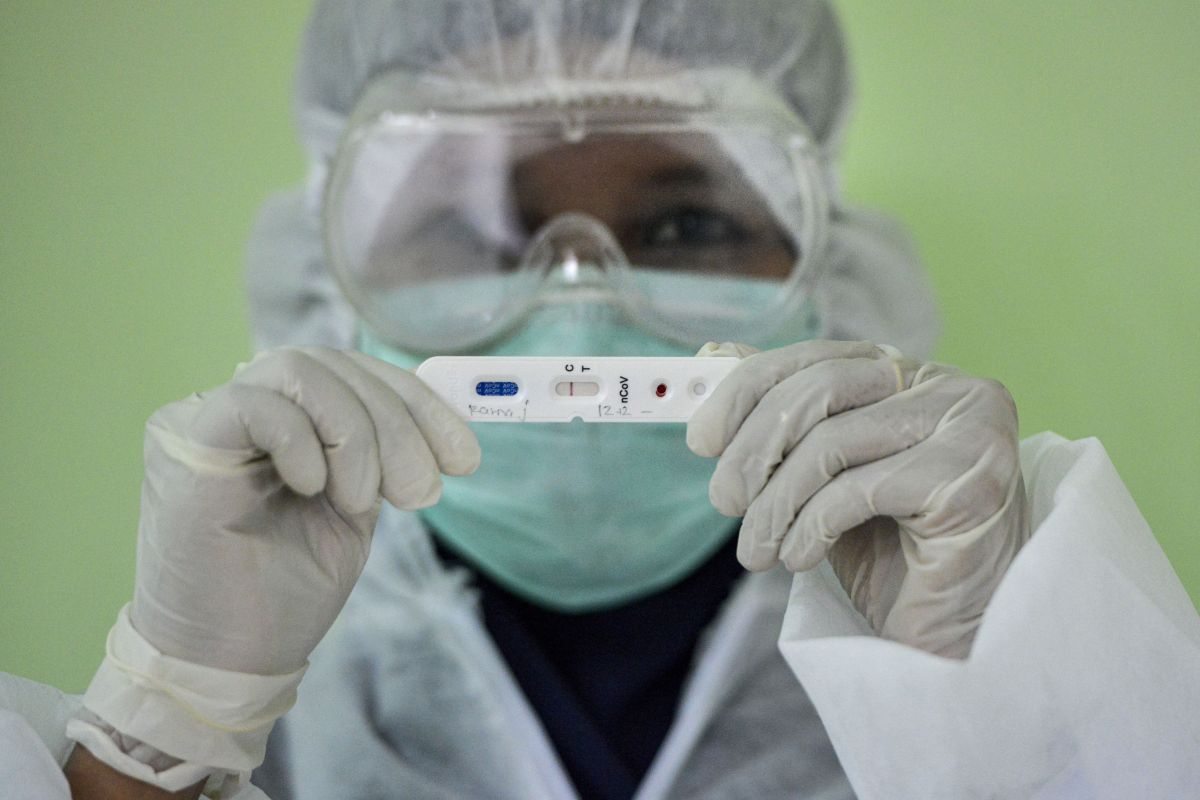Still unexplained
The hunt for the origins of Covid-19 has for the past four years been a tangled web of politics, power struggles, and international finger-pointing.
The state still does not have precise data on the number of coronavirus deaths and those who have succumbed to “concurrent diseases”.

An Indonesian medical worker clad in protective gear poses with a blood test sample during mass testing for the COVID-19 coronavirus at a community health centre in Banda Aceh on April 20, 2020. (Photo by CHAIDEER MAHYUDDIN / AFP)
Having opted to effect an audit to distinguish between patients who died of coronavirus, and those who succumbed to what they call “concurrent diseases”, the West Bengal government now appears to be cutting corners. The random sampling of deaths, as planned, will scarcely be able to calibrate data on the coronavirus pandemic, such as it is in the state.
The decision has left relatives of patients quite totally confused not the least because the Chief Minister, who has the Health portfolio under her belt, has admitted (rather belatedly) that she “knew little” about the panel and its formation.
The other pretty obvious admission is that neither she nor the minister of state for health, Chandrima Bhattacharya, are “medical experts”.
Advertisement
Yet another is that the audit committee was set up by health department officials, and that the Chief Minister’s office was not privy to the exercise.
That would suggest a horrifying lack of coordination. It is not the sort of lacunae that hobbles a routine sphere of governance; the harsh truth must be that the health department has accorded short shrift to elementary coordination. More the pity, therefore, that the department’s performance in the matter of audit has happened at the peak of the pandemic and when the lockdown has entered the second month.
The state still does not have precise data on the number of coronavirus deaths and those who have succumbed to “concurrent diseases”.
The infructuous exercise of auditing and its appalling failure would have been laughable were it not for the tragic implications for the sick and the dying. The audit committee was formed on 3 April and its failure has been exposed after exactly a month.
Arguably, its performance would have remained under the hat were it not for the Centre’s inter-ministerial team which had questioned the state government on the purpose of the panel; it had even expressed dissatisfaction over the bureaucratic response.
This perhaps has prompted the Chief Secretary to let it be known that the panel would no longer probe every death of a patient. It would be fairly reasonable to assume that the audit files have been wrapped up and prematurely so.
By its very nature, random sampling cannot furnish a comprehensive survey. By the Chief Secretary’s own admission, the committee has mentioned various loopholes in the manner in which medical records were being maintained, let alone the norms set by the World Health Organization.
Not wholly unrelated to the bungling is the transfer of the medical superintendent and vice-principal of Murshidabad Medical College and Hospital to a professorial post at the North Bengal Medical College and Hospital in Siliguri. He is said to have directed the Murshidabad hospital not to mention Covid-19 as the cause of death for patients who had been admitted for coronavirus. Clarity has been the cardinal casualty.
Advertisement